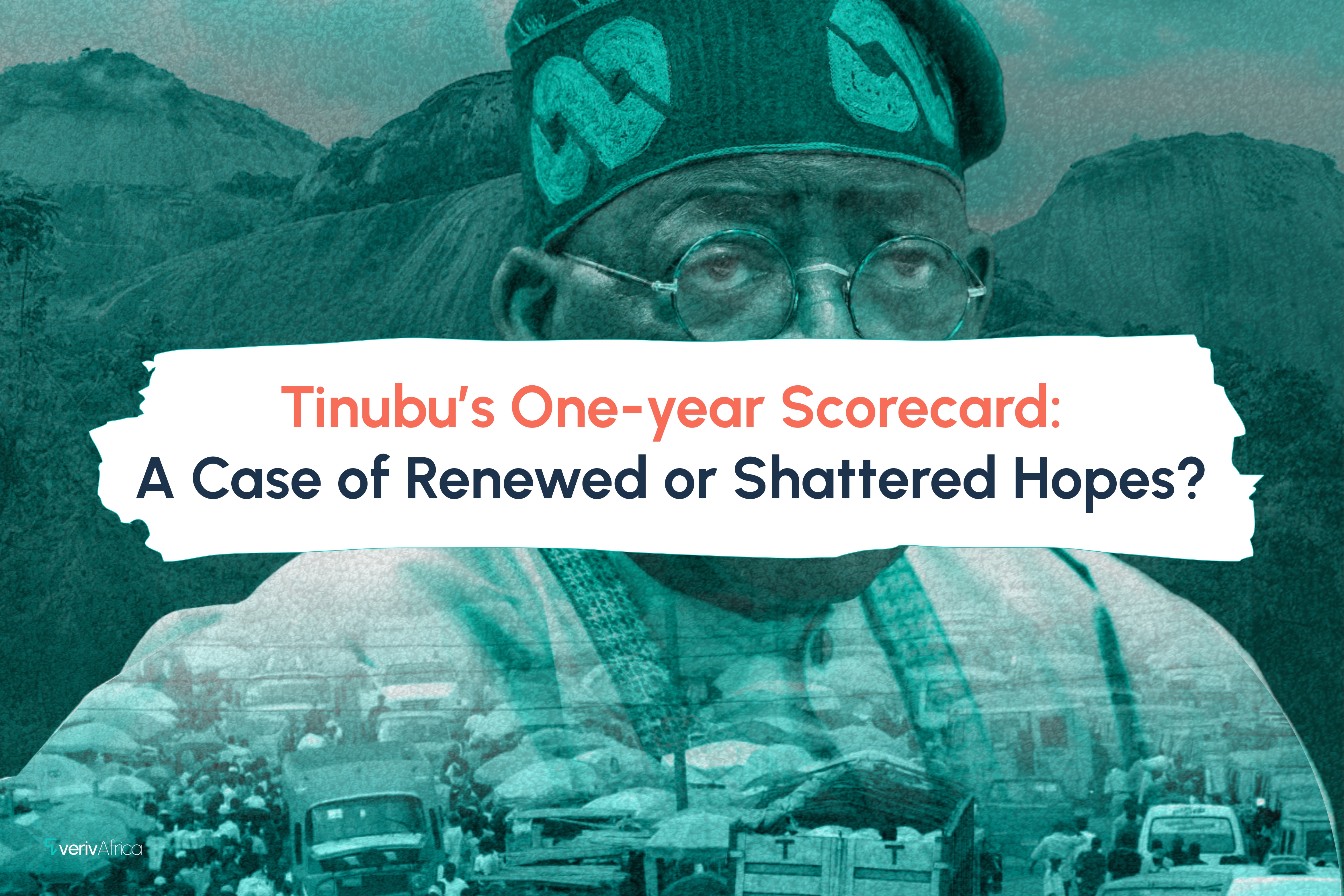How to Make the Nigeria Startup Act Work

Nigeria is a recognised powerhouse in the African tech ecosystem. It is firmly established as “one of the “big four” startup ecosystems in Africa alongside South Africa, Kenya and Egypt,” says a report by Disrupt Africa. With the number of startups exceeding 3,360 in 2022, according to Statistica, and funding rounds attracting significant capital, the Nigerian startup ecosystem has become a force to be reckoned with. However, regulation is a persistent challenge plaguing startup ecosystems worldwide. Nigeria is no exception, as regulation is always two steps behind, playing catchup to innovation. On several occasions, it has actively or passively impeded innovation. This dynamic is particularly pronounced in the tech eco-system, where regulators often resort to bans rather than trying to understand innovation, collaborate, and then regulate. The recent cryptocurrency saga in Nigeria exemplifies the issue above.
A Case in Point: Cryptocurrency Regulation
The Cryptocurrency Saga started in 2017 when the Central Bank of Nigeria (the “CBN”) issued a circular to all banks and financial institutions flagging virtual currencies as “largely untraceable, making them susceptible to abuse by criminals, especially in money laundering and terrorism financing”. The circular also directed banks and other financial institutions not to hold, trade, or transact in virtual currencies in any way.
This restriction can be described as the first blow in the crackdown on cryptocurrency companies in Nigeria. This was followed in February 2018 by a press release warning that some listed cryptocurrencies were not licensed in Nigeria, not protected by law, and not legal tender. Consumers were advised to exercise caution in their dealings with these cryptocurrencies. However, the most significant blow was the letter to the CBN directing financial institutions to identify and close the accounts of persons and entities transacting in cryptocurrency with immediate effect (the “CBN 2022 Directive”). Two days after the directive, the CBN issued a 5-page press release explaining the rationale for its directive.
According to the CBN, cryptocurrencies were issued by unregulated and unlicensed entities, which goes against the CBN’s mandate to issue legal tender in Nigeria. Also, due to the anonymity associated with cryptocurrencies, they are well suited for illicit activities, including money laundering, terrorism financing and tax evasion. The effect of this policy direction was that cryptocurrency companies were locked out of the Nigerian banking systems. The CBN froze several accounts, and banks were fined for breaching this directive. This move was interpreted by founders, investors, the international community, and the average Nigerian as a cryptocurrency ban. The P2P crypto market thrived, and Nigerians, once again in their resilience, found a way to hack the system.
In 2022, there appeared to be a silver lining for cryptocurrency companies with the issuance of the Rules on Licensing Digital Assets and Virtual Assets Companies by the Securities and Exchange Commission (“SEC”). The Rules, however, remained redundant pending the reversal of the CBN 2022 Directive. This reversal, however, did not occur until December 2023, when the CBN issued the guidelines permitting cryptocurrency companies to open and operate bank accounts in Nigeria, subject to obtaining an SEC license first, among other requirements. However, none of these initiatives stopped the most recent crackdown on cryptocurrency companies in February 2024, with arrests made and telecom operators blocking access to the websites of these companies. It feels like 2022 again, and nothing seems to have changed.
The events above show how regulation and policy can drive or, in this case, impede innovation. This chronology highlights some of the key challenges faced by the Nigerian tech eco-system in general and startups, i.e., understanding the constantly evolving regulatory landscape, adapting to policy changes, building resilient business models, engaging in regulatory advocacy with regulators, and continuously monitoring and scanning the regulatory environment. These issues are not unique to cryptocurrency - similar themes play out across various sub-sectors of the tech ecosystem, e.g. the effect of Nigeria’s erratic foreign exchange policies on cross-border remittance startups. In a nutshell, doing business in Nigeria in recent years has become increasingly more complex, and startups that do not have the resources, track record, or resilience of larger companies are more vulnerable to these harsh economic conditions.
The Startup Act
Recognising these challenges, the Nigerian government took a bold step in November 2022, when the then-president of Nigeria, President Muhammadu Buhari, signed the Startup Act (the “Act”) into law.
Nigeria is the third Country after Tunisia (2018) and Senegal (2019) to enact a startup law in Africa according to reports from the Nigeria Economic Summit Group and Tech Cabal. Other countries in the world with startup laws include Italy (2012), Argentina (2017), Philippines (2018), DR Congo (2022) and Portugal (2023), with startup acts in the works in many other countries including Ethiopia and Cote d’Ivoire.
The Act was a product of collaboration and several months of engagements among the major stakeholders of the startup ecosystem- the regulators, startups, civil society, and investors.
The objectives of the Act are simple: to provide a legal and institutional framework and an enabling environment for startups to thrive and talents to be harnessed while positioning the Nigerian startup ecosystem as a leading technology hub in Africa. To achieve these objectives, the Act adopts five broad strategies:
Startup labelling
Access to funding
Tax and fiscal incentives
Regulatory collaboration and synergy, and
Community and talent building.
To drive the implementation of these strategies, the Act created the National Council for Digital Innovation and Entrepreneurship (the “Council”) with its secretariat at the National Information Technology Development Agency (“NITDA”).
The Journey So Far
The Act's implementation was substantially stalled until the Startup Portal's launch because many of the initiatives and incentives under the Act are tied to the labelling of startups. Additionally, there has been little to no activity on the part of the Council in fulfilling its responsibilities under the Act. These responsibilities include the constitution of the Startup Consultative Forum, the issuance of a framework for setting up innovation hubs in each state of the federation, design and implementation of training and capacity building initiatives,driving inter-agency collaboration etc.
While the Act's current impact on the startup ecosystem in Nigeria remains unclear as its implementation is still in early days, we can look to other jurisdictions to see the potential a well-executed startup Act holds for the startup ecosystem. A study by Francesco Biancalani et al. revealed that Italy's Startup Act (Law 221/2012) positively impacted access to capital for startups, driven mainly by the tax benefits for investors and easier access to bank loans for young companies. Similarly, Franco Varona of Foxmont Capital cited the Philippines' Innovation Act as a catalyst for structural improvements in the Startup ecosystem, including the launch of venture funds and easing local content restrictions on foreign ownership. These examples illustrate the potential of the effective implementation of the Startup Act in Nigeria.
Making the Startup Act Work
In Nigeria, the problem is not the absence of laws but their implementation. A glance through the Laws of the Federation of Nigeria (LFN) and the state compendiums reveals a wealth of enacted legislation gathering dust due to poor or non-existent implementation. The Startup Act must be an exception.
But How?
1. Political Will:
The Nigerian Startup Act is a product of political will, and its successful implementation hinges on continued political will. It is essential to highlight that while being an Act of the National Assembly, the state governments also play a vital role in its implementation. So far, according to Techpoint Africa, Rivers State is the second state after Kaduna to approve the adoption of the Startup Act. In total, as of March 2023, only 12 of Nigeria’s 36 states (Anambra, Ekiti, Imo, Kaduna, Kwara, Lagos, Nassarawa, Niger, Osun, Oyo, Rivers and Zamfara) have indicated interest or initiated the domestication of the Act.
The biggest challenge the Act may face is overcoming the apathy of the political class, who may be myopic concerning the long-term benefits of the Act. The Act’s dependence on multiple regulators and stakeholders for implementation necessitates strong political support from federal and state governments to achieve full implementation.
2. The Role of NITDA:
NITDA, as secretary to the Council, plays a pivotal role in making the Act work. It is the fulcrum that holds the various moving parts together. An ideal situation however, would have been to have an independent body with the sole objective of implementing the Act for the following reasons:
Conflict of interest: The recent bill to amend the NITDA Act proposes licensing requirements that would cover startups if passed. A situation where the same body responsible for fostering growth and development in the startup ecosystem is also the ecosystem’s primary regulator would raise conflict of interest concerns.
Dedicated resources: NITDA has existing roles and responsibilities as an agency. The full implementation of the Act is a task that a single unit or department within NITDA cannot manage. Additionally, the Act does not provide a budget for its implementation, so NITDA and other agencies must work within their limited budgets to carry out their functions under the Act. This may substantially de-incentivize the fulfilment of their obligations under the Act.
Following the example of Startup Portugal, a non-profit organisation that supports the Portuguese government in the implementation of the Portuguese National Strategy for Entrepreneurs, or Smart Capital, a management company which is the national operator of Startup Tunisia, a dedicated body with the sole KPI of implementing the Act could prove more effective than NITDA. While this recommendation can not be implemented immediately, given that it necessitates amending the Act, it is a long-term consideration worth exploring. In the meantime, NITDA could be better strengthened by allocating sufficient resources and recruiting competent staff to manage the startup desk. Additionnaly, the Council could consider creating and appointing the dedicated body above as a Council Agent pending the amendment of the Act.
3. Interagency Synergy:
Closely related to political will is the interagency relationship. The successful implementation of the Startup Act requires seamless collaboration between numerous Ministries, Departments and Agencies of government (‘MDAs”), including the NITDA, CBN, SEC, Corporate Affairs Commission (CAC), Nigerian Investment Promotion Commission (NIPC), Nigeria Sovereign Investment Authority, National Office for Technology Acquisition and Promotion (NOTAP), the Nigeria Export Processing Zones Authority (NEPZA), as well as the Ministries of Communications and Digital Economy, Finance, Budget and National Planning, Industry, Trade and Investment and Science, Technology and Innovation. For effective implementation of the Act, these regulators must work in synergy, not silos. However, one major hurdle is the history of a lack of communication between these MDAs.
NITDA has a pivotal role to play in bridging the gap between these MDAs. First, NITDA should develop a regulatory roadmap for implementing the Act. This roadmap should identify all the MDAs involved, their roles, and the timeline for their activation. NITDA should also actively engage with these MDAs, ensuring they understand their roles under the Act. NITDA should also consider providing training, guidance notes and support materials that show how each MDA can perform its obligations under the Act.
4. Optimising the Startup Portal
The Nigeria Startup Portal is another key element for the success of the Act. The portal is currently limited to registration and labelling functionalities. The Startup Portal can be so much more. Taking a cue from the Startup Tunisia portal, which offers a robust suite of services including labelling, funding, networking, a startup database, job listings, educational resources, etc, NITDA should also make the Startup Portal a one-stop shop for the 360 implementation of the Act. The Startup Portal should have dedicated sections for labelling, license application, sandbox listings and applications, tax and fiscal incentives listings and applications, funding (i.e. application to the startup investment and seed fund, credit guarantee scheme, government grants and loans), accelerators and incubators listings, partners network, intellectual property and technology registrations, educational resources etc. While the Act currently envisions some of these functionalities, e.g., the licensing applications and registrations within the portal, these features have yet to be implemented.
It is acknowledged that NITDA does not hold all the cards for the full implementation of the Act. Thus, it may be necessary to adopt a staggered approach, where the portal is gradually updated to reflect these functionalities. For instance, the portal can be populated with comprehensive information and listings on all the services that will be provided. Then, NITDA may gradually develop and integrate the other functionalities as soon as they become available.
Conclusion
The premise of this insight can be summarised in one phrase: “It takes a village to raise a child.” The child, in this case, is the Nigerian startup ecosystem. The enactment of the Startup Act was not a one-man parade, so its successful implementation cannot be borne on the shoulders of a single institution. The startup ecosystem needs all the help it can get to grow and reach its full potential. As immediate next steps, NITDA and the Council should set up the Startup Consultative Forum to guide NITDA and the Council in their implementation journey. A substantial part of the responsibility for making the Act work rests on the shoulders of NITDA and the Council. Therefore, NITDA and the Council must take ownership of their roles as the primary drivers of the Nigerian Startup ecosystem and take proactive steps to create a good foundation and a functional ecosystem for the growth and development of startups in Nigeria.
References
Aderemi Ojekunle. “CBN asks banks to block accounts of 18 companies” The Cable, https://www.thecable.ng/cbn-asks-banks-to-block-accounts-of-18-companies
Bunmi Aduloju. “CBN hits banks with N1.31bn fine for flouting directive on crypto accounts” The Cable, https://www.thecable.ng/cbn-fines-six-banks-n1-31bn-for-flouting-directive-on-closure-of-crypto-accounts
Central Bank of Nigeria (“CBN”). “Response to Regulatory Directive on Cryptocurrencies” CBN Press Release https://www.cbn.gov.ng/out/2021/ccd/cbn%20press%20release%20crypto%2007022021.pdf
CBN. “Circular to Banks and Other Financial Institutions on virtual Currency Operations in Nigeria” CBN, https://www.cbn.gov.ng/out/2017/fprd/aml%20january%202017%20circular%20to%20fis%20on%20virtual%20currency.pdf
CBN. “Letter to all Deposit Money Banks, Non-Bank Financial Institutions and Other Financial Institutions” CBN, https://www.cbn.gov.ng/out/2021/ccd/letter%20on%20crypto.pdf
CBN. “Virtual Currencies not Legal Tender in Nigeria - CBN” CBN Press Release https://www.cbn.gov.ng/out/2018/ccd/press%20release%20on%20virtual%20currencies.pdf
CBN. “Guidelines on Operations of Bank Accounts for Virtual Asset Service Providers” CBN, https://www.cbn.gov.ng/Out/2024/FPRD/GUIDELINES%20ON%20OPERATIONS%20OF%20BANK%20ACCOUNTS%20FOR%20VIRTUAL%20Asset%20Providers.pdf
Daniel Adeyemi. “The Democratic Republic of Congo means business with its new Startup Act” Tech Cabal (2022) https://techcabal.com/2022/12/02/the-democratic-republic-of-congo-business-with-startup-act/
Deji Elumoye. “Buhari Inaugurates 14-man National Council to Implement Nigeria Startup Act 2022” This Day, https://www.thisdaylive.com/index.php/2023/04/05/buhari-inaugurates-14-man-national-council-to-implement-nigeria-startup-act-2022
Disrupt Africa. “Nigeria Startup Ecosystem Report” Disrupt Africa, https://old.disruptafrica.com/wp-content/uploads/2022/09/The-Nigerian-Startup-Ecosystem-Report-2022.pdf
Dr. Raymond Onuoha. “Nigeria’s Startup Act 2022: A Benchmark Assessment” Nigerian Economic Summit Group (2023) https://nesgroup.org/download_resource_documents/NRFP%20Policy%20Brief-%20Dr%20Raymond%20Onuoha_1701187276.pdf
Francesco Biancalani et al. “The ItalianStart-Upp Act: a microeconometric program evaluation” Small Bus Econ (2022) 58:1699–1720 https://link.springer.com/content/pdf/10.1007/s11187-021-00468-7.pdf
Ganiu Oloruntade. “Two Binance executives arrested in Nigeria following website ban” Tech Cabal, https://techcabal.com/2024/02/28/binance-arrest/
Osamu Ekhator. “Rivers becomes the second state in the country to adopt the Nigerian Startup Act” Techpoint Africa, https://techpoint.africa/2023/12/14/rivers-adopts-nigerian-startup-act/
Startup Portugal. https://startupportugal.com/about/
Startup Tunisia. https://startup.gov.tn/en/home
Statistica. “Estimated number of startups in selected African countries in 2022” Statistica, https://www.statista.com/statistics/1290679/number-of-startups-in-africa-by-country/
Temitayo Jaiyeola. “Nigeria restricts Binance, others access months after lifting ban” Business Day, https://businessday.ng/business-economy/article/ncc-directs-telcos-to-block-binance-others-website/
The Nigeria Startup Act. https://pwcnigeria.typepad.com/files/nigeria-startup-act-2022-signed.pdf
The Nigeria Startup Portal. https://www.thisdaylive.com/index.php/2023/04/05/buhari-inaugurates-14-man-national-council-to-implement-nigeria-startup-act-2022
Timothy Motte. “An exclusive interview with Franco Varona, managing partner at Foxmont Capital, a top-tier Filipino VC” The Realistic Optimist, https://www.realisticoptimist.io/p/the-filipino-startup-ecosystem-was
Similar Insights
View All
Lagos State Single Use Plastic Ban: Rethinking Nigeria's Policy Environment

Learning Poverty: Policy Gap and Pathways to Progress

A Data-Driven Argument for State Police in Nigeria

The Kidnap For Ransom Industry In Nigeria: A Breakdown

How Much Data Does Policy Making in Nigeria Need?

Tinubu’s One-year Scorecard: A Case of Renewed or Shattered Hopes?

A Case for Disability Access to Public Infrastructure in Nigeria
Don't miss out!
Our subscribers receive firsthand updates on our recent content. We hope you become one, too.
It's free, so why not?

